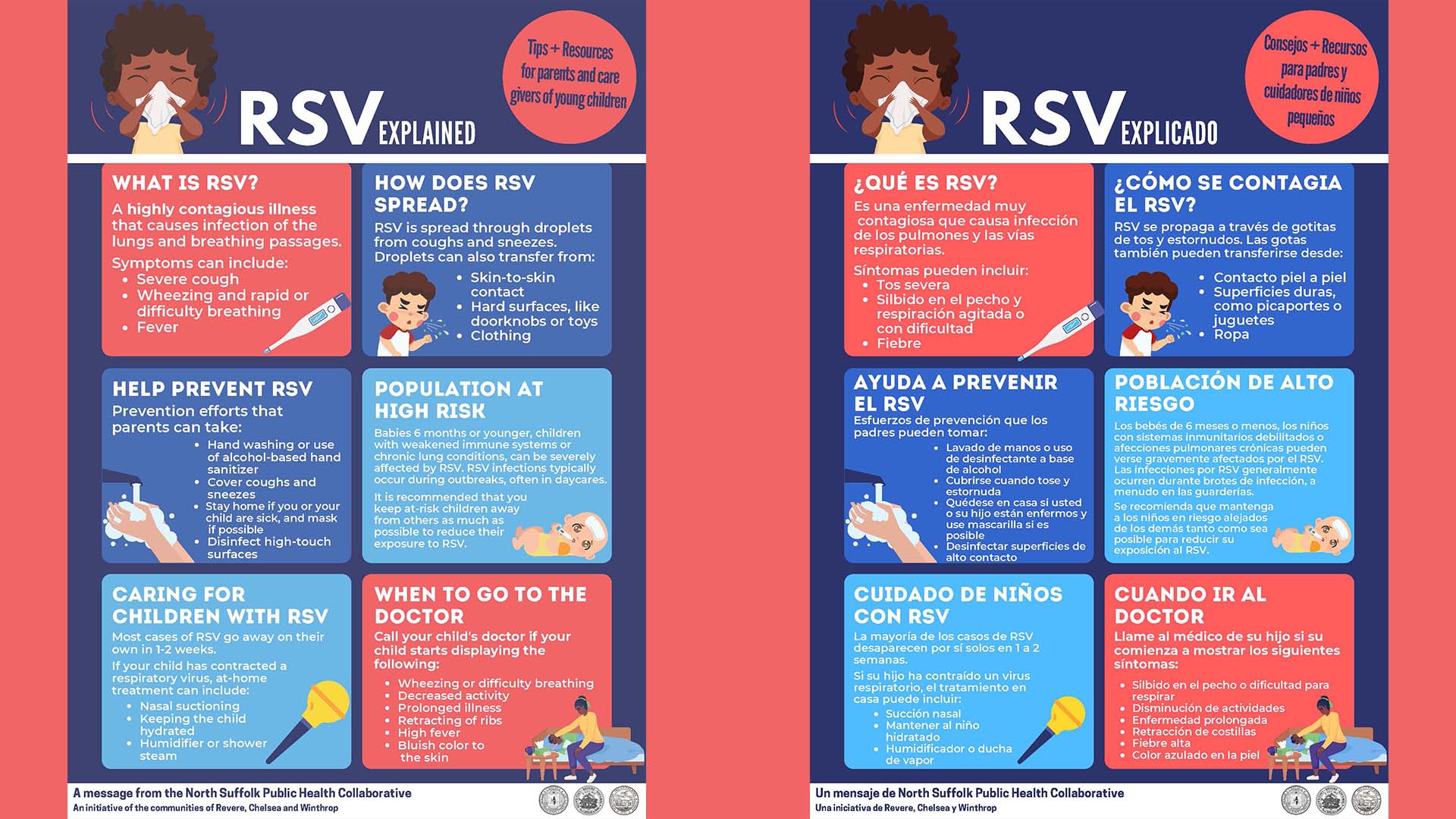RSV Information from the North Suffolk Public Health Collaborative
RSV Resources (PDF) | Recursos sobre RSV (Formato PDF)
CHELSEA, Mass. - The North Suffolk Public Health Collaborative has organized information, resources, and preventative strategies about RSV, a prominent respiratory illness that can be serious for infants and older adults.
What is RSV?
A highly contagious illness that causes infection of the lungs and breathing passages. Symptoms can include:
- Severe cough
- Wheezing and rapid or difficulty breathing
- Fever
How does RSV spread?
RSV is spread through droplets from coughs and sneezes. Droplets can also transfer from:
- Skin-to-skin contact
- Hard surfaces, like doorknobs or toys
- Clothing
How to prevent RSV?
The following is a list of prevention efforts, including for parents with kids who are sick, can take:
- Hand washing or use of alcohol-based hand sanitizer
- Cover coughs and sneezes
- Stay home if you or your child are sick and mask, if possible
- Disinfect high-touch surfaces
The high-risk population
Babies six months or younger and children with weakened immune systems or chronic lung conditions can be severely affected by RSV. RSV infections typically occur during outbreaks, often in daycares. It is recommended that adults and parents keep at-risk children away from others as much as possible to reduce their exposure to RSV.
Caring for children with RSV
Most cases of RSV go away on their own in 1-2 weeks. If your child has contracted a respiratory virus, at-home treatment can include:
- Nasal suctioning
- Keeping the child hydrated
- Humidifier or shower steam
When to go to the doctor
Call your child's doctor if your child starts displaying the following:
- Wheezing or difficulty breathing
- Decreased activity
- Prolonged illness
- Retracting of ribs
- High fever
- Bluish color to the skin




